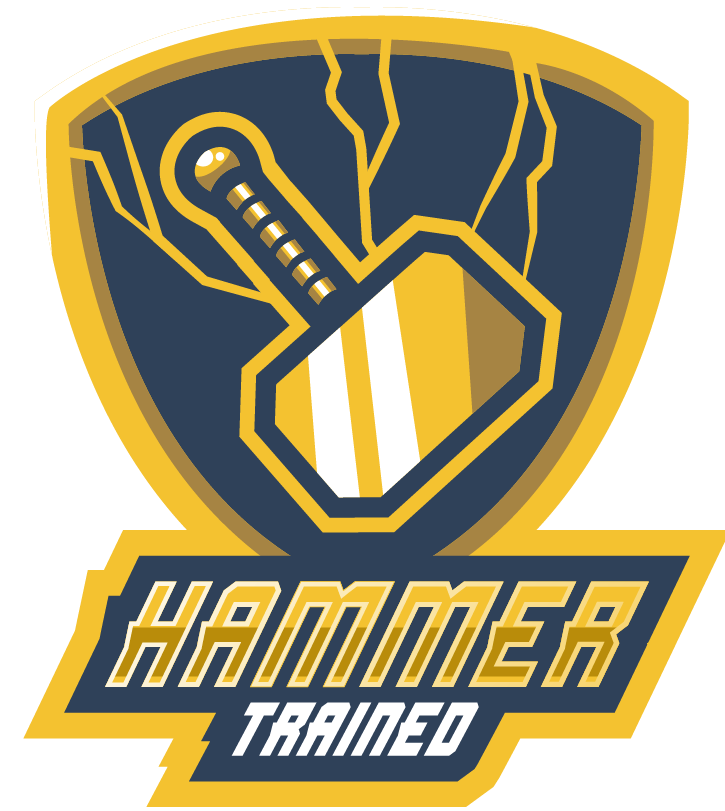
HAMMER SPORTS AND PERFORMANCE
MARTIAL ARTS FOR ALL AGES!
The Role of Martial Arts in Bullying Prevention
Bullying remains a serious and widespread issue affecting children and adolescents worldwide, often leaving lasting emotional, psychological, and even physical scars. Families, schools, and communities are constantly searching for effective solutions to address this problem. Among the emerging approaches, martial arts stands out as a powerful tool for bullying prevention. Through structured and disciplined training, martial arts not only teach self-defense but also equip children with essential life skills that help them handle bullying situations effectively, whether they are potential victims or bystanders.
This article delves into how martial arts, particularly at Hammer Sports and Performance, contribute to bullying prevention by fostering confidence, discipline, respect, and resilience. We’ll explore how martial arts principles can reshape the way children interact with peers, manage conflicts, and develop healthy self-esteem, making it an excellent tool for addressing bullying in today’s schools and communities.
Understanding Bullying and Its Impact
Definition and Types of Bullying
Bullying is a repeated, aggressive behavior that involves an imbalance of power. It can manifest in several forms, each with its own devastating effects:
- Physical Bullying: Harm or intimidation through physical actions such as hitting, kicking, pushing, or damaging belongings.
- Verbal Bullying: Name-calling, teasing, threats, and other forms of verbal harassment.
- Cyberbullying: Using electronic communications like social media, texts, or emails to harass or intimidate.
- Social Bullying: Also known as relational bullying, this involves exclusion, spreading rumors, or manipulating social relationships to harm someone’s reputation or friendships.
Psychological and Physical Effects of Bullying
Bullying can have severe psychological and physical impacts on victims. Emotionally, it often leads to anxiety, depression, low self-esteem, and social isolation. Physically, stress from bullying can manifest as headaches, stomachaches, sleep issues, and even academic struggles. These effects can persist long after the bullying has stopped, highlighting the need for proactive prevention strategies.
Bullying in Schools: A Pressing Concern
Statistics show that approximately one in five students in the U.S. report being bullied at school. Given its prevalence, schools are tasked with finding comprehensive solutions that address the root causes of bullying while promoting an inclusive, supportive environment. This is where martial arts, with its focus on personal growth and discipline, can play a crucial role.
How Martial Arts at Hammer Sports and Performance Contribute to Bullying Prevention
Martial arts offer a multi-faceted approach to bullying prevention, not by encouraging physical confrontation, but by teaching children the mental, emotional, and physical tools necessary to navigate conflict, develop resilience, and foster mutual respect.
Building Confidence and Self-Esteem
One of the most significant ways martial arts help prevent bullying is by building confidence and self-esteem. As children at Hammer Sports and Performance progress through ranks and master new techniques, they gain a sense of accomplishment that helps boost their self-worth. This newfound confidence empowers them to stand up for themselves and others, which can deter potential bullies who often target individuals they perceive as weak or insecure.
Developing Self-Discipline and Respect
Martial arts training at Hammer Sports and Performance emphasizes core values such as self-discipline, respect for oneself and others, and hard work. These values extend beyond the gym, influencing how children interact with peers, teachers, and family members. By promoting a mindset of mutual respect and self-control, martial arts help prevent bullying by fostering a culture of empathy and responsibility. Students learn to avoid impulsive reactions and instead approach situations thoughtfully.
Enhancing Physical Fitness and Mental Resilience
Martial arts training involves regular physical activity, which is known to improve mood, reduce anxiety, and promote overall well-being. In addition to enhancing physical fitness, martial arts build mental toughness. Children learn to manage stress, face challenges, and remain calm under pressure, skills that are critical when dealing with bullying. This resilience makes them less vulnerable to bullying and more equipped to handle difficult situations.
Key Principles of Martial Arts That Prevent Bullying
Non-Violence and Self-Control
A key tenet of martial arts is non-violence. Children are taught that martial arts skills are not to be used to start fights but rather as a last resort for self-defense. This principle helps students develop self-control, a crucial trait in bullying prevention. By learning how to de-escalate situations and avoid aggression, children are less likely to engage in physical confrontations and more likely to resolve conflicts peacefully.
Conflict Resolution and De-Escalation Techniques
At Hammer Sports and Performance, martial arts training includes lessons on conflict resolution. Verbal assertiveness, maintaining calm under pressure, and strategic retreat are some of the techniques emphasized during classes. Children are taught to stand their ground without resorting to aggression, helping them navigate confrontations in a non-violent manner. This skill set is invaluable for preventing bullying and managing conflict in general.
Sense of Community and Belonging
Martial arts schools foster a strong sense of community. Students often develop close bonds with their peers, which creates a supportive environment where bullying is less likely to occur. This sense of belonging can also make children more confident in intervening as bystanders, helping to prevent bullying from happening to others. The inclusive culture at Hammer Sports and Performance ensures that all students feel supported, making it a safe space for everyone.
Success Stories: Martial Arts Making a Difference
Real-Life Examples of Martial Arts in Bullying Prevention
Many students and parents report the transformative effects martial arts have had on their ability to handle bullying situations. At Hammer Sports and Performance, numerous students have gained the confidence and resilience needed to stand up to bullies or support their peers in similar situations. Testimonials from parents frequently highlight how their children became more assertive, self-assured, and socially integrated after joining martial arts programs.
Specialized Programs for Bullying Prevention
Many martial arts schools, including Hammer Sports and Performance, offer specialized anti-bullying workshops and programs. These include role-playing scenarios, self-defense training, and lessons in non-violent conflict resolution. These programs are designed to empower children to respond to bullying in constructive, non-aggressive ways, providing them with practical strategies they can use in real-life situations.
Partnering with Schools and Communities
Hammer Sports and Performance actively partners with schools and community organizations to promote anti-bullying initiatives. Through these partnerships, martial arts programs can be integrated into school curriculums, providing children with regular access to bullying prevention tools. Such collaborations have been instrumental in creating safer, more inclusive environments within schools.
Implementing Martial Arts Programs in Schools
Steps to Introduce Martial Arts in School Curriculums
Integrating martial arts into school curriculums requires careful planning and collaboration between martial arts instructors, school administrators, and parents. Schools should first identify experienced martial arts professionals with a focus on bullying prevention. Setting clear goals, aligning the program with the school’s values, and maintaining regular communication with parents ensures a successful implementation.
Training for Instructors: Focusing on Anti-Bullying
Martial arts instructors play a vital role in promoting bullying prevention. At Hammer Sports and Performance, instructors receive specialized training on how to create a supportive, inclusive atmosphere while addressing bullying behaviors. This training focuses on instilling respect, teaching non-violent conflict resolution, and providing students with the tools to manage bullying situations effectively.
Measuring the Impact of Martial Arts on Bullying
To evaluate the success of martial arts programs in reducing bullying, schools and instructors should monitor changes in reported bullying incidents, gather feedback from students and parents, and track student progress. Regular assessments can help refine the program and ensure it continues to meet its anti-bullying objectives.
Overcoming Misconceptions About Martial Arts and Violence
Addressing Myths: Martial Arts Promotes Aggression
A common misconception is that martial arts encourage violence. In reality, martial arts teach the opposite — self-control, respect, and non-violence. Educating parents and communities about the core principles of martial arts helps dispel these myths and promotes martial arts as a safe and effective tool for bullying prevention.
Educating Parents and Guardians
Parents play an essential role in supporting their children’s participation in martial arts. Hammer Sports and Performance ensures that parents are well-informed about the focus on character development, respect, and non-violent conflict resolution in martial arts training. Clear communication about the program’s goals and safety measures reassures parents that martial arts is a positive influence on their child’s behavior and development.
Frequently Asked Questions (FAQs)
Can Martial Arts Really Help Prevent Bullying?
Yes. Martial arts can help prevent bullying by boosting self-confidence, teaching conflict resolution, and fostering respect and empathy.
What Age Is Appropriate for Kids to Start Martial Arts?
Children can begin martial arts training as young as four, depending on the program.
Hammer Sports and Performance offers age-appropriate classes tailored to different developmental stages.
How Do Martial Arts Teach Conflict Resolution?
Martial arts teach conflict resolution through verbal assertiveness, strategic avoidance, and de-escalation techniques, empowering children to handle confrontations peacefully.
Is Martial Arts Safe for Kids Who Have Experienced Bullying?
Yes. Martial arts provide a safe and supportive environment that focuses on empowerment and resilience-building, making it an ideal activity for children who have experienced bullying.
Request Information
Get started today!
ACCESS OUR SCHEDULE
& EXCLUSIVE WEB SPECIAL
All Rights Reserved | Brava Holdings Inc.

